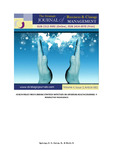PROFILING THE PERFORMANCE OF COMMUNITY HEALTH VOLUNTEERS IN HEALTH SERVICE DELIVERY DURING THE COVID-19 PANDEMIC IN NAKURU COUNTY
Abstract
In response to the global shortage of healthcare workers, including Kenya, the World Health Organization (WHO) recommended utilizing Community Health Workers (CHWs), known as Community Health Volunteers (CHVs) in Kenya, to provide basic health services. This study aimed to assess the performance of CHVs in routine community health services in Nakuru County during the COVID-19 pandemic, evaluating their preparedness and challenges faced. The study employed concurrent triangulation mixed method research design, sampling 262 CHVs and 12 key informants. Data was collected from the Kenya Health Information System (KHIS), through in-depth interviews and through structured questionnaires. Descriptive statistics was used to analyze quantitative data while thematic analysis was applied to collected qualitative data. The study enrolled 262 CHVs, with a notable gender imbalance where 76.3% were females, and only 23.7% were males. The age distribution among CHVs was varied, with a majority falling within the 40-59 age range, comprising 65.6% of the total participants. The majority of CHVs were married (63.7%) and had completed secondary education (45.8%). A significant proportion of CHVs were engaged in business (47.8%) or farming (24.8%). Nearly all CHVs (98.9%) had volunteered for more than five years. A considerable number had completed technical training modules (62.6%). CHVs generally rated their performance as good both before and during the COVID-19 pandemic, albeit with slight agreement between the two periods (κ = 0.061). CHVs demonstrated resilience and adaptability during the pandemic, expanding their services to include COVID-19 responseactivities such as contact tracing. Despite initial disruptions, CHVs resumed their duties shortly after. The study highlights a significant delay in the preparedness of Community Health Volunteers (CHVs) for service delivery during the COVID-19 pandemic. CHVs faced various challenges in service delivery, including logistical constraints, lack of clear communication channels, and organizational shortcomings. Psychosocial challenges included fear of infection, stress, exhaustion and social isolation. The lack of frequent psychosocial support and counseling compounded the emotional toll on CHVs, leading to burnout and mental health issues. In conclusion, CHVs performed relatively betterduring the pandemic but there was a delay in terms of preparedness and notable challenges faced during service delivery. The study recommends, targeted recruitment of male volunteers, mentorship for younger recruits, continuous education for all CHVs, integrating pandemic preparedness into training, increased stakeholder investment, and comprehensive psychosocial support programs for CHVs.
Collections
Related items
Showing items related by title, author, creator and subject.
-
COMMUNICATION AND MATERNAL COMMUNICATION AND MATERNALCHILD HEALTH PROMOTION: A CHILD HEALTH PROMOTION: A STUDY OF RURAL BUSIA COUNTY
AKWALA, BY ALFRED. O. (2015-03-19)Maternal health refers to the health of the mother during pregnancy, childbirth and the postpartum period( WHO, 2008). Access and utilization of basic health care in rural Kenya is a worrying issue. Kenya is one of the ... -
INFLUENCE OF SELECTEDSTRATEGIES ON IMPLEMENTATION OF DONOR ASSISTED E-HEALTH MANAGEMENT SYSTEMS IN KENYA: A SURVEY OF PUBLIC HEALTH FACILITIES IN NAKURU COUNTY
CHERUIYOT, PURITY CHEMUTAI (KABARAK UNIVERSITY, 2018-10)E-health is emerging as one of the most important paradigms of healthcare management due to its significant potential to deliver cost-effective, quality health care, and spending on ehealth systems by governments and ... -
HEALTH POLICY AND PLANNING STRATEGY INITIATIVES ON UNIVERSAL HEALTH COVERAGE: A PERSPECTIVE FROM KENYA
KENNEDY ONGOYE, Ogwengo; G., Kamau; N., Gitahi, (The Strategic Journal of Business & Change Management, 2022-05-24)Universal health coverage is an important and noble objective for quality healthcare service delivery for all citizens in any country. However, it needs to be anchored on a robust policy framework. Therefore, a strong ...



